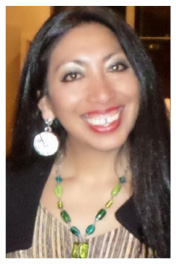I am a woman openly living with HIV in Bolivia. In the early 2000s, in the early days of my activism, it was difficult to find women responding to the HIV epidemic. For a long time, the HIV epidemic in Latin America was known as a phenomenon associated with the gay community, which pushed away many militants of the feminist movement.
Increasingly, HIV is understood to be something that directly affects women. HIV is associated with gender norms that continue to be unfavorable to women in most countries. Gender violence is the cause and effect of HIV and, in turn, creates more violence.
The HIV epidemic is an unprecedented challenge that requires the best alliances possible. However, despite the data, there are not many HIV prevention and care programs with a gender focus. The most well-known interventions continue to focus on HIV testing for pregnant women whose goal is to prevent transmission of HIV to children; and prevention programs through women who are sex workers. In either case, programs continue to focus on women as a transmission vector for other populations.
In the 17 years of community activism as a woman living with HIV and as a survivor of sexual violence, I have seen few programs that have strategies for the empowerment of women. It is true that they talk about the use of condoms and their negotiation, but the reality of gender norms makes this very complicated for many women. Cases are known where women asking their partners to use a condom has resulted in physical violence or murder. Especially for Latin American countries, a gender perspective is required to be incorporated into HIV prevention and care programs, starting with strategies targeting girls and young people.
For these reasons the alliance between groups of women is important. Today, the HIV-positive community is seeing a drastic decline in HIV funding while cases continue to increase, affecting young women more and more, this will have a negative effect on women because in many countries they are not considered a “group at risk”.
Women with HIV witness the vulnerability of women who already have stigmas and less privileges, such as indigenous women, transgender women, women in sex work, those deprived of their liberty, those who use drugs and those who live in contexts of violence.
We need your help!
– – – – – – – – – – – – – – – – – – – – – –

Gracia Violeta Ross Quiroga (Bolivia) is a 38-year-old woman from La Paz-Bolivia, studied Anthropology in Bolivia and a Masters in Gender, Sexual and Reproductive Health in Peru.
Since 2000, when she discovered her HIV positive diagnosis, she organized people living with HIV to achieve universal and free access to medicines and care. ) For over ten years, Ross has been the President of the National Network of Persons Living with HIV and AIDS in Bolivia (REDBOL).
She is currently a Member of the World Health Organization Civil Society Working Group for Tuberculosis, a member of the Medicines Patent Pool’s Expert Advisory Group and the Delegate of Communities Living with Disease on the Governing Board of UNITAID; she was a member of the Civil Society Advisory Committee for UN Women in Latin America and the Caribbean.
Ross is an activist living with HIV, a public speaker on her experience of sexual violence and her HIV diagnosis, writer and researcher known in Bolivia and abroad. Ross is the second daughter of an evangelical pastor in La Paz.
